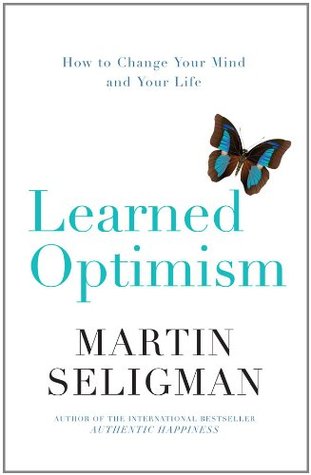
Learned Optimism
 Learned
Optimism by Martin
E. P. Seligman isn't really homesteading-related. But I've found that
mindset is very important in everything ranging from creating a
microbusiness to keeping your garden weeded, So I'm going to regale you
with highlights from this classic for the rest of the week.
Learned
Optimism by Martin
E. P. Seligman isn't really homesteading-related. But I've found that
mindset is very important in everything ranging from creating a
microbusiness to keeping your garden weeded, So I'm going to regale you
with highlights from this classic for the rest of the week.
First, though, I wanted
to write a little about the book itself. Seligman is considered by many
to be the father of positive psychology, and given some of the tripe
that fills that field, I wasn't sure what to expect. Imagine my
surprise to find that his book reads like a Lorenz- or Tinbergen-style
popularization of years of intense scientific research. No woo-woo here!
In fact, the most common
negative review of the book can be summed up as follows: too much data.
So if you don't enjoy looking behind the curtain and seeing how science
is done, you might want to skip the middle half of the book. On the
other hand, the beginning and end should still be up most people's
alleys. And, personally, I found the middle eminently readable...but I
do have a background in science.
I should warn the
potential reader about a couple of other problematic aspects as well.
First of all, the book is nearly thirty years old at this point, so you
might be left feeling like you need to delve into the recent literature
for updates. (Not necessarily a problem, although a potential time
sink.) More troubling, there are some animal experiments that will make
the squeamish cringe (although I didn't find them nearly as bad as I'd
thought they would be). So read at your own risk!
Okay, enough about the
book itself. Tomorrow, I'll present the highlight of Seligman's
research --- the finding that thought patterns developed as children
will determine your future success, health, and more. And those
patterns aren't set in stone --- you can change them if you're willing.
Want more in-depth information? Browse through our books.
Or explore more posts by date or by subject.
About us: Anna Hess and Mark Hamilton spent over a decade living self-sufficiently in the mountains of Virginia before moving north to start over from scratch in the foothills of Ohio. They've experimented with permaculture, no-till gardening, trailersteading, home-based microbusinesses and much more, writing about their adventures in both blogs and books.
Want to be notified when new comments are posted on this page? Click on the RSS button after you add a comment to subscribe to the comment feed, or simply check the box beside "email replies to me" while writing your comment.
